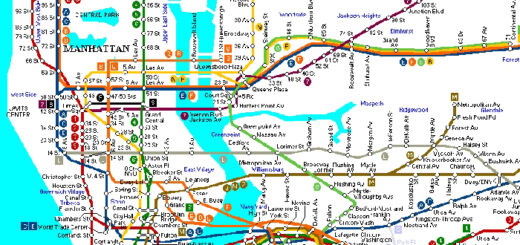Martha Thomases: New York is Comics Country
There used to be a wonderful street fair on New York’s Fifth Avenue in the fall, usually on a Sunday, called “New York is Book Country.” Publishers would show their wares. A few bookstores would set up shop on the sidewalk in front of their shops (there were still bookstores on Fifth Avenue then), and one could stroll down the middle of the street, meeting authors, finding new treasures, and enjoying the city that was, then, the center of American publishing.
That was where I met Madeleine L’Engle, a true high point of my existence.
New York used to be Book Country and, even more, it was Comics Country. Comics were born here. The largest comic book companies were here (or, in the case of Archie, in our suburbs). The business was small enough so that one could no everyone in it. An outsider (like me) could become an insider by learning where people hung out and arranging to be in those places often enough to become friends.
Last week, DC Comics moved its offices to Burbank California, and many noted that this was the end of an era.
Yet just as I might have tumbled into a pit of nostalgic regret, the very next day saw the beginning of this year’s MoCCA Festival. In the heart of the hyper-hip Chelsea gallery district, MoCCA was a breath of fresh air. Literally, in that it was housed in a building with a lovely rooftop terrace.
MoCCA is unlike most of the other New York comic shows in that it doesn’t include retailers or dealers. There are a few booths from publishers (including Abrams, Pantheon, .01, Fantagraphics and others), but mostly it is individual creators, selling their own creations. And while sometimes this can make me feel like an old fart, it’s also exciting and energizing. Every year, there is so much eager new talent.
As I walked down West 22nd Street from Tenth Avenue, I noticed that almost all the other pedestrians were women and girls. I think most of the people inside the facility were also women and girls. Klaus Janson tells me that more than half of the people who take his class at the School of Visual Arts are female.
Another sign that this is a new era for comics.
The very next evening after MoCCA ended, there was a panel discussion at Columbia University about the work of Denis Kitchen, who just donated his archives to the library’s collections. He spoke, along with a few academics and Howard Cruse about the early days of underground and independent comics. At one point during the Q & A part of the conversation, one of the academics said he looked forward to a time when comic book studies were considered to be just as important as film studies.
Still another sign.
In two weeks, the City University of New York will host a two day conference titled, “08,” which will feature keynote speakers Howard Cruse and Alison Bechdel. Alison’s keynote is already sold out.
Publishing comics might not rely on New York City anymore, but it’s still home to a lot of people who love to read them.











